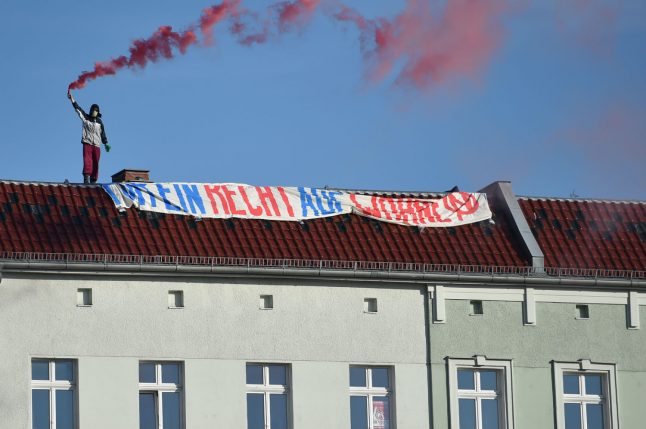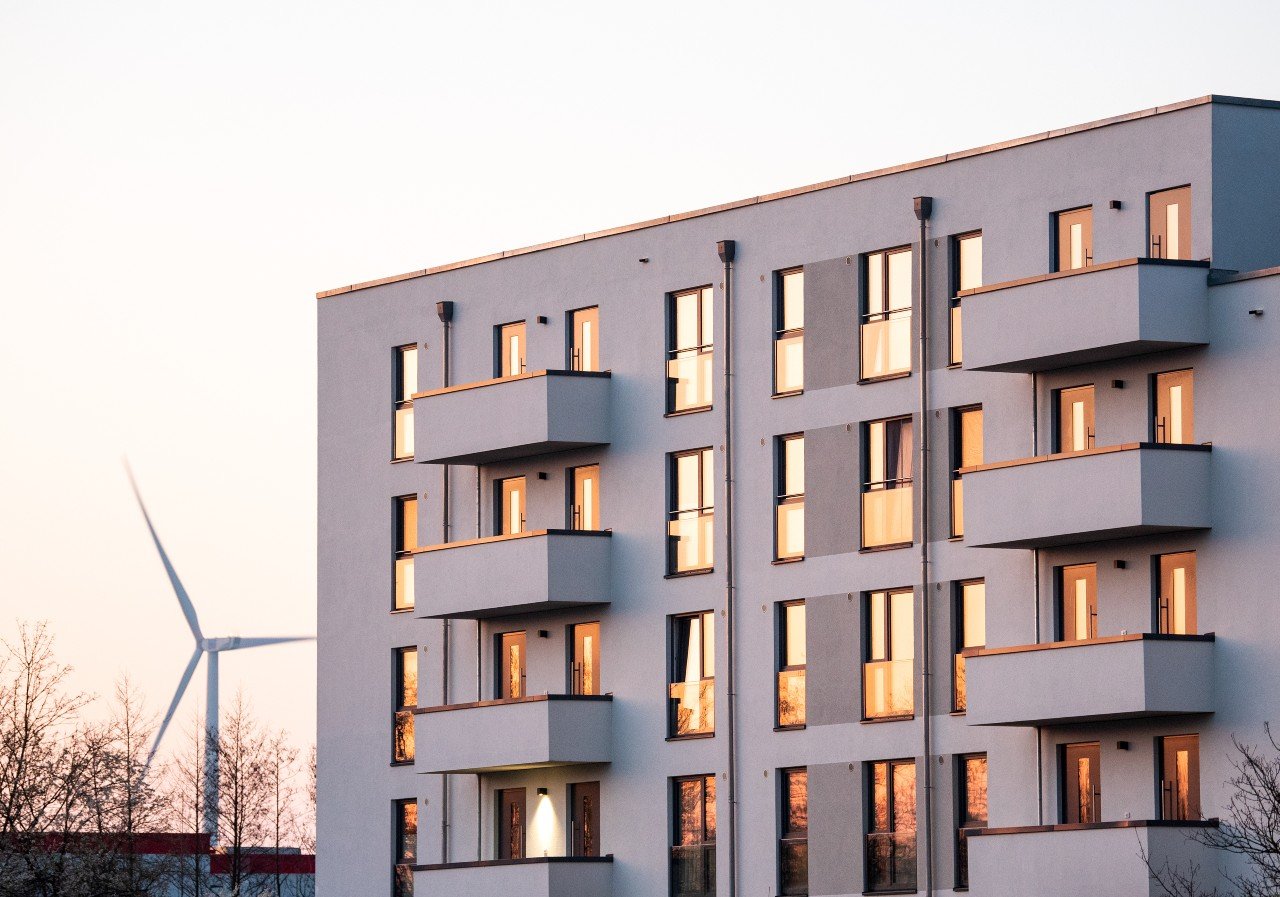When Marian Ryan moved into what she calls “the last scruffy corner” of Berlin district Prenzlauer Berg in 2010, she and her partner were already paying what most of the neighbours in their house considered too much: €700 cold for 75 square metres.
But the ground-floor location was ideal for Ryan, a writer with physical mobility issues who works from home. So in 2014, when the landlord offered her and all of her neighbours a €100-per-square-metre settlement to leave the building prior to renovation work, most refused. “Everybody thought that was an atrocious offer,” she said.
Ryan was experiencing something first hand that has become a central social issue in Berlin in recent years: an overheated rental market is making it lucrative for landlords to try and push out long-term tenants in order to charge new tenants much higher rents.
Two years after the initial offer, a representative of the real estate company came to discuss building renovations to the common spaces, like a new elevator and balconies. He passed out a letter stating that the changes would affect tenants’ rent, and they should contact the landlord to discuss it.
“It was all very vague, and it didn’t say anything about us having to leave,” Ryan said.
In late 2016, construction work commenced, with each project leaving a bigger mess, like uncollected trash accumulating for weeks. Ryan remembers it “like a frog being boiled in a pot of water, just gradually getting worse.”
Through 2017, construction noise and the chaos took its toll. When a jackhammer started deconstructing the marble tile in her hallway, the noise became unbearable. Ryan’s partner was ready to leave, and he contacted the landlord. They were sent a contract to sign, but it still had the name and settlement amount of a different tenant in the building, who had moved out two years prior.
“There were typos and things. All of these alarm bells went off – the contract was so unprofessional!” A lawyer from the Berliner Mieterverein whom they consulted agreed the terms were unfair, and their proposed deal included a gag order against the couple talking about their settlement.
Instead, they filed an injunction against the elevator construction. After two court cases, a settlement of nearly €30,000, and continued construction, Ryan and her partner moved out last autumn.
 Photo: DPA
Photo: DPA
Germany: a renter society
Across the country, Germans are more likely to rent than people in most of the rest of Western Europe. Historically, the partnership between public-sector subsidies and private-sector development has contributed to a robust, high quality, and fairly stable rental market, making renting a more attractive option than owning for nearly half of Germans.
But this delicate balance has been breaking down recently.
Low-income housing in Germany is decreasing while rent prices in Germany’s big cities are rapidly growing, explains Dr. Jutta Hartmann of the Deutscher Mieterbund, Germany’s national tenant association.
She cites less construction of homes, increased immigration, and complicated legal requirements on energy efficiency as major contributors.
Additionally, the much-lauded Mietpreisbremse, or “rental price break law,” introduced in 2015 to cap rent increases at 10% above the local average in areas with tight housing markets, has often proved ineffective.
SEE ALSO: Germany's controversial rent control law works after all (at least in central Berlin)
“In Germany, there are actually only around 1.25 million social housing units,” Dr. Hartmann explains. “Annually, between 40,000 and 50,000 apartments fall out of social housing agreements, and there has not been an expansion in the offerings.”
In 1990, a federal government report placed the number of social housing units at around three million.
The national trend is amplified in Berlin, where the population is growing by around 40,000 people a year. Since 2009, rents have increased across the capital city by 46%, while around 50% of households in Berlin are now entitled to rental assistance.
Many of the capital’s young, new inhabitants spend weekends hopping between open houses, vying with 50 or more prospective tenants in rapidly gentrifying neighbourhoods.
Loopholes in the Mietpreisbremse allow landlords to breach the 10% ceiling for a variety of reasons. For example, if the landlord spends more than one-third of the price of building a new unit on modernizing the flat, the Mietpreisbremse does not apply. That means that there has been more money spent on modernizing Berlin’s housing stock, but it has also led to coerced move-outs and outright evictions.
 “The death of affordable housing”. Kreuzberg. Photo: DPA
“The death of affordable housing”. Kreuzberg. Photo: DPA
Public housing mysteries sorted – sort of
There are about 1.6 million rental homes in Berlin, around one-fourth of which are either owned by the city’s six municipal housing companies or are part of social housing programs.
The municipal housing companies are for-profit, independent entities whose shares are held by the city. Encouraged by a city government eager to pay down its debts, several years ago city officials mandated that these companies raise rents, generate revenue, and create an income for the city to pay off debts. As a result, much of Berlin’s public housing is market rate and higher.
In 2015 a grass-roots initiative collected 50,000 signatures and threatened to force a referendum on social housing. The Berlin Senate responded by passed an affordable housing law, making social housing more affordable and less at risk for privatization. It provides more funds for the modernization of buildings, makes it more difficult to evict a tenant from social housing, and expands the role of tenant advisory boards to make the sale of public housing much more difficult.
It also stipulates that one in five apartments owned by those city-controlled companies shall be reserved for refugees and homeless people. The core feature of the bill caps rent for low-income tenants at 30% of their income, with the government stepping in to subsidize higher rents in municipal buildings.
However, as Dr. Hartmann points out, a number of units fall out of social housing agreements each year. This “fall out” has to do with a public sector subsidy offered in the 1990s to private developers which encouraged them to build low income housing in exchange for the promise that the rents would remain affordable for 20 years. Often renters have been forced out of their homes of over 15 years when the agreements expire and landlords have snapped rents back to market rates.
Critics of the city’s bill also claim it doesn’t go far enough. “It’s not a sustainable policy at all,” says Michael LaFond, referring to the 20-year subsidies. “We can’t afford to throw money out there to build homes that we won’t have 10 or 20 years later”, says Le Fond, founder of ID:22 Institute for Creative Sustainability, a non-profit idea lab for urban co-housing theory and practice.
Another critique is that this only reforms those 25% of rentals owned by municipal companies, leaving the other 75% to the private sector, which is gobbling up central Berlin real estate on the speculative market.
Taking back control?
On a Monday morning in late January, more than 100 people gathered in an old brick warehouse in central Berlin to discuss the development of a new social housing project. Haus der Statistik is the object of plans by ZUsammenKUNFT Berlin, an alliance of local artists, architects, and social and cultural associations.
The group has been working together since 2016 to take control of the austere former DDR statistics headquarters at Alexanderplatz and turn it into social housing, artist workspaces, and public education spaces. The project gives some hope for social housing in a time when many city residents see only anxiety and gentrification.
The motto of ZUsammenKUNFT cuts straight to the heart of Berliners working to keep their city on their terms: “Through solidarity, creating a Berlin that’s sustainable and cosmopolitan.”
 Haus der Statistik. Photo: DPA
Haus der Statistik. Photo: DPA
When it comes to working together though, nothing happens quickly, and nothing happens without the clear buy-in of all interested parties. Unlike in private housing like Ryan’s building, where tenants can be enveloped in construction without their consent, Haus der Statistik will be a slow road to consensus.
In fact, the planning meeting in January simply initiated an agreement to spend the next eight months negotiating how space will be divided and used.
But for advocates of social housing, it is the best way towards building a stable and sustainable rental market – and one fitting to Berlin’s alternative ethos.
“The story of Berlin is bottom-up organizing. It’s a question of power, and people in the city getting mad, getting scared,” says LaFond, “It’s a city of renters and low income people, and those people are expressing their basic interests and fears.”
LaFond predicts that “projects and initiatives will continue to put pressure on the government, and the government will continue to react and work for a more social real estate and housing policy,” predicts LaFond. “Things are moving. It’s really dynamic. And it is largely a question of power.”
READ ALSO: 'Bureaucracy makes you feel like a lowly beggar': surviving on the streets of Berlin







 Please whitelist us to continue reading.
Please whitelist us to continue reading.